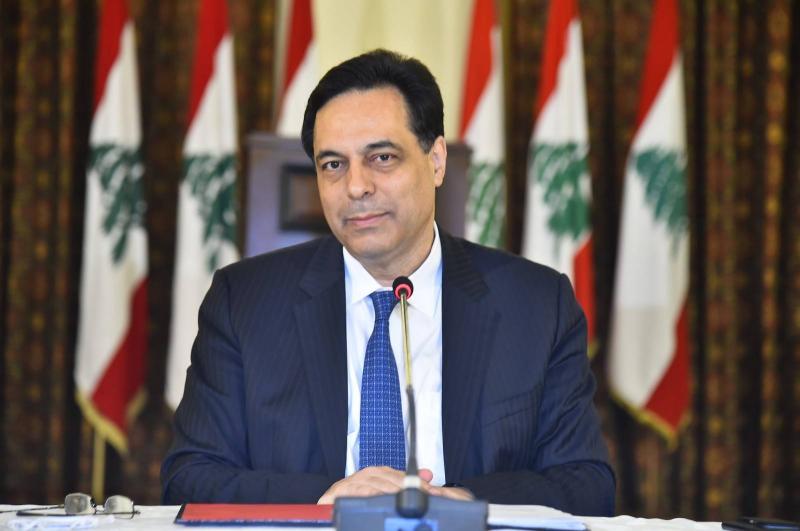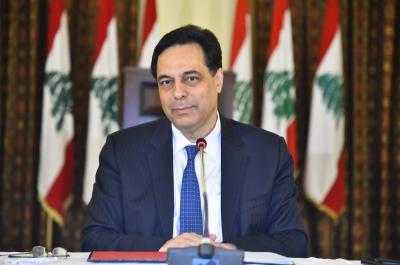Lebanese Caretaker Prime Minister Dr. Hassan Diab issued an appeal to "all Arab brothers" during a conversation with the Qatari News Agency at the Lebanese embassy in Qatar, stating: "Lebanon is in serious danger and can no longer wait; we have exhausted our resources, and Lebanon is now without a safety net. We expect you to stand by this country that has never hesitated to make great sacrifices for Arab causes and to be the safety net to protect your Lebanese brothers." He thanked the State of Qatar for its "continuous support to Lebanon without noise."
He added, "Lebanon yearns to restore Arab solidarity, not to stand on the lines of antagonism and division among Arabs and pay the bills of that. There is no stability or independence for Arabs collectively or individually except by restoring the significance of Arab solidarity. In Lebanon, we have no place except as a bridge for communication among Arabs; Arab solidarity protects our unity and our Arab identity. Therefore, it pains us, as it pains you, the state of our Arabism. We look forward with you to the days of hardship coming to an end, and I have faith that the dark cloud will lift, and pure Arabism will regain its golden days."
President Diab emphasized "the important role played by Lebanese expatriates spread across different countries in the world," pointing out that they are "a vital tool in assisting Lebanon, especially since their remittances reached $7 billion annually in previous years. They play a key role in supporting the economy and bringing foreign currency into the country and the Lebanese market."
Regarding his comment that "Lebanon has entered a dark tunnel," he clarified that "the Lebanese constitution, in Article 64, set a framework for a caretaker government to operate 'within narrow lines,' and his government is doing just that. For this reason, the current government has not convened any cabinet sessions despite the presence of more than 220 exceptional approvals during the past 8 months (the caretaker period) instead of cabinet meetings."
He stressed the "national need to expedite the formation of a government so it can continue the work carried out by the current government regarding discussions and negotiations with the International Monetary Fund and the reforms outlined in the roadmap which is today referred to as the French plan, coinciding with the government's plan to confront challenges."
He recalled that his government's term was only 6 months, and now 9 months have passed while it continues to serve in a caretaker capacity, during which Lebanon has faced crises and disasters that exceed those of 6 governments, including the COVID-19 pandemic, the Beirut port explosion, and the turmoil that occurred in March 2020.




